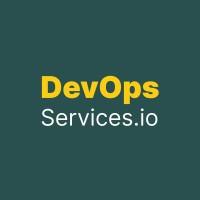Is DevOps Full Stack?

Strong 8k brings an ultra-HD IPTV experience to your living room and your pocket.
DevOps has become an integral part of modern software development, streamlining operations and bridging the gap between development and IT teams. However, many professionals and businesses still wonder whether DevOps is considered full stack. Understanding the relationship between DevOps and full stack development is crucial for organizations looking to optimize their software delivery pipeline.
In this article, we will explore the role of DevOps, its connection to full stack development, and how devops services & solutions contribute to seamless software delivery. We will also discuss the key skills required for DevOps professionals and how they align with full stack capabilities.
Understanding DevOps
What is DevOps?
DevOps is a combination of development (Dev) and operations (Ops). It is a set of practices, tools, and cultural philosophies aimed at automating and integrating software development and IT operations. DevOps enhances collaboration between development and operations teams to improve the speed, quality, and security of software deployments.
Core Components of DevOps
Continuous Integration and Continuous Deployment (CI/CD): Automating the software release process
Infrastructure as Code (IaC): Managing infrastructure through code
Monitoring and Logging: Ensuring application performance and security
Containerization and Orchestration: Using tools like Docker and Kubernetes
Security and Compliance: Implementing DevSecOps to integrate security into development
Understanding Full Stack Development
What is Full Stack Development?
Full stack development refers to the ability to work on both the frontend and backend of an application. A full stack developer has expertise in multiple programming languages, frameworks, databases, and server management.
Key Components of Full Stack Development
Frontend Technologies: HTML, CSS, JavaScript, React, Angular
Backend Technologies: Node.js, Python, Java, Ruby on Rails
Databases: SQL, NoSQL, MongoDB, PostgreSQL
Version Control: Git, GitHub, GitLab
Cloud Computing: AWS, Azure, Google Cloud
How DevOps Relates to Full Stack Development
Overlapping Skill Sets
Both DevOps and full stack development require a deep understanding of various technologies. While full stack developers focus on building applications from end to end, DevOps professionals ensure smooth integration, deployment, and infrastructure management. Some overlapping areas include:
Cloud Computing: Both DevOps and full stack developers use cloud platforms like AWS and Azure.
Containerization: Understanding Docker and Kubernetes is essential for both roles.
Automation & Scripting: Both require knowledge of scripting languages like Python, Bash, or PowerShell.
Version Control: Using Git for source code management.
Differences Between DevOps and Full Stack Development
Feature
DevOps
Full Stack Development
Focus
Deployment, Automation, Infrastructure
Application Development
Key Tools
Jenkins, Terraform, Kubernetes
React, Node.js, MongoDB
Cloud Usage
Infrastructure provisioning
Application hosting
Security
DevSecOps (security integration)
Application security
Goal
Faster, reliable software delivery
End-to-end software development
The Role of DevOps Services & Solutions in Full Stack Development
Organizations looking to implement full stack development along with DevOps can leverage devops services & solutions to enhance efficiency. These services include:
1. Cloud Infrastructure Management
Automating cloud deployments using Terraform, Ansible
Managing resources in AWS, Azure, and Google Cloud
2. CI/CD Pipelines
Setting up automated testing and deployment pipelines
Reducing manual errors and speeding up software releases
3. Containerization and Microservices
Implementing Docker and Kubernetes for scalable applications
Managing containerized environments efficiently
4. Security and Compliance
Integrating security practices (DevSecOps)
Ensuring compliance with industry regulations
Is DevOps Considered Full Stack?
While DevOps and full stack development share some common technologies, they serve different purposes. Full stack development focuses on application development, whereas DevOps emphasizes automation, deployment, and infrastructure management.
However, a DevOps engineer with a full stack background can be highly valuable in managing the entire software development lifecycle. Companies investing in devops services & solutions can bridge the gap between development and operations to achieve better efficiency.
Conclusion
DevOps is not traditionally considered full stack, but there is significant overlap in technologies and skill sets. Full stack developers build applications, while DevOps engineers ensure seamless deployment, monitoring, and automation. Organizations can benefit from leveraging devops services & solutions to optimize software delivery and infrastructure management.
If you’re looking to improve your DevOps strategy, investing in expert devops services & solutions can help you streamline your development pipeline, enhance automation, and ensure high availability of your applications. The future of software development lies in the integration of DevOps and full stack capabilities to create scalable, secure, and efficient applications.
Note: IndiBlogHub features both user-submitted and editorial content. We do not verify third-party contributions. Read our Disclaimer and Privacy Policyfor details.


